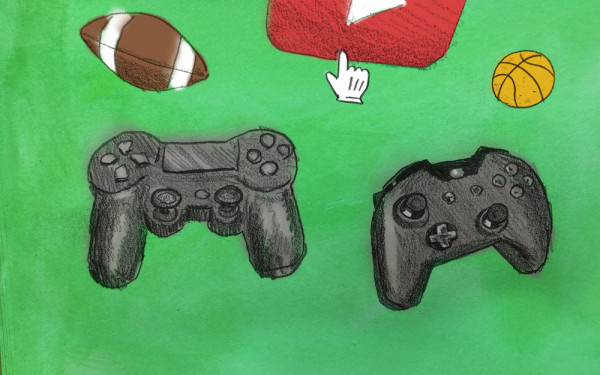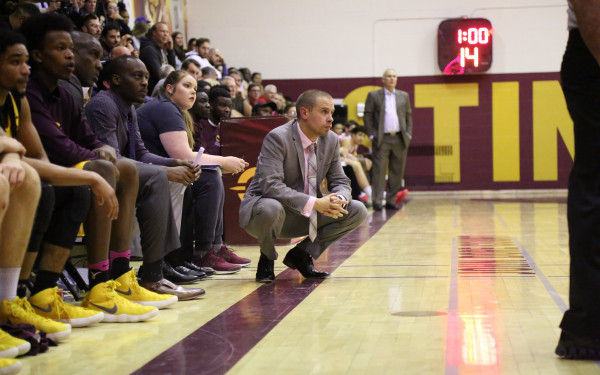The reality of student-athletes during the COVID-19 pandemic
With sports shut down during the pandemic, find out how student athletes keep developing their game
Growing up while playing sports at an elite seems all-encompassing, so what do you do when a global pandemic forces you to put that part of your life on pause?
Over the past two years, student-athletes all over have had to find alternative ways to continue their development with little to no real-time competition.
Last November, The Concordia Stingers women’s basketball team ended the first part of their season with a record of four wins and four losses. Since then, fierce competition in practices, weight rooms, and Zoom sessions has helped the team restart the season with two straight wins.
Basketball is a physical sport, and the restraints to avoid direct contact forces players and coaches to be creative with their training. In the gym, the team separated into smaller groups to work on drills with their position coach.
At home, players work remotely with their strength and conditioning coach by using their gym equipment or any objects that can simulate weights. “They have to find the motivation within themselves,” said head coach Tenicha Gittens.“You have to adjust to the limitations that surround what you’re able to do physically as a unit.”
In April 2019, during her first year with the team, center Serena Tchida was rehabilitating from an ACL tear she suffered the day she got recruited for the university. The COVID-19 pandemic began the following year. She has been preparing for a long time to play her first complete season. “The toughest part was staying uncertain about whether we were playing or not,” admitted the third-year player.
Tchida improved her dribbling and shooting skills with the team’s training schedule. However, building chemistry with her teammates, on and off the court, became more of a challenge for her. “Collectively, it’s harder because we can’t work together because of COVID,” explained Tchida. As a result, she participated in team bonding sessions, set up by Gittens, to get to know her comrades better.
Bianca Di Pasquale, a 17-year-old student at John Abbott College, competes at the U19-U21 AAA level with Pierrefonds. Before the last sports lockdown, she practiced two to three times a week with her team outside. Now, she’s limited to multiple training sessions on Zoom.
The lack of social gathering and bonding impacts the growth of athletes between the age of 13 and 18 years old. At their age, tactical thinking, within the collective effort of the team, is a point of emphasis in their learning of the game. These relationships create a positive environment that helps them to grow with their teammates. “If fun doesn’t happen, learning doesn’t happen,” said Valmie Ouellet, the technical director of the Pierrefonds Soccer Association.
Furthermore, preserving the mental health of the athletes is essential. “In 2021, last spring, the most important thing for the club was to get the 13-year-olds and older on the field,” explained Ouellette. “We knew they had probably suffered the most psychologically from not being in school, from not being with their friend.”
To make up for the lack of outdoor team activities, Bianca lifts weights, rides her stationary bike every day at home and practices outside, in the snow, by herself. Regardless of the circumstances, her passion for soccer has grown during the pandemic. “All the opportunities our coaches are trying to give to us to train and develop now, really help me to realize how much I miss kicking a ball.”




4_600_375_90_s_c1.jpg)


_600_375_90_s_c1.jpg)